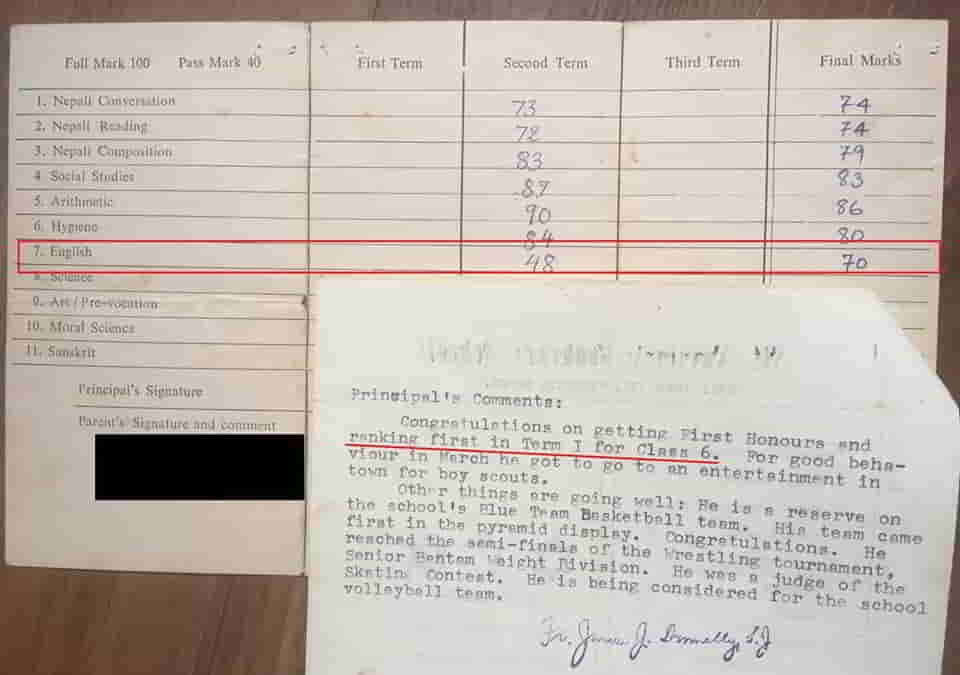It amazes and pains me in equal measure that any private school you take in Kathmandu thinks that they are better than most others in the valley when — I suspect — a majority of them provide pretty poor quality education!
Education in most of the private schools I have visited is pretty much limited to imparting the most basic of skills: the ability to memorize and regurgitate facts and figures. Very little of critical thinking skills are imparted. Many of the private school science teachers I worked with certainly did not conduct engaging lessons. For that reason, one of the things I have been doing as part of my teacher education program, is to demonstrate science lessons in which I made the student think, among other things.
Incidentally, contrary to what seems to be the generally accepted view, high Secondary Education Examination (SEE) pass rate or high average grade of SEE candidates is NOT a good measure of the quality of the school’s education.
Anyway…one of the many ways a private school tries to give the impression that they are better is by, for example, saying they provide a “progressive” education.
Another is in the manner they handle a transfer student.
They make the student take an admissions test. Nothing wrong with that. Where it goes wrong is the way they find the child lacking academically in some area(s). Then they go on to explain that, since their academic program is so much more rigorous, the child won’t manage unless s/he repeats a year! (One of the reasons for that is, the cynic in me thinks, the potential to make more money from the parents from the longer period of attendance at the school. After all, private school education is really mostly a business.)
Regardless, after my little nephew took his admissions test for grade 1 — yes GRADE 1 — his English language proficiency was found lacking! The school didn’t think he was ready for grade 1! At the time, my nephew was almost six and had been growing up with four languages at home!
If you are an educator, you know that you can teach a toddler or a young child a language, any language, if YOU are able to teach it well!
I have to only to go back to my own education for that.
When I was admitted to St. Xavier’s Godavari School, after just several weeks in grade 1, I was promoted to grade 2. But my English language skills were non-existent, having attended public schools until then. (In those days, public schools in the country did not teach English to their students until they reached grade 4.) As a matter of fact, I failed English the first term and in the second term, I barely passed. In the third term, however, I got a respectable 70 (see image below)!
(The first terminal examination grades don’t appear in the report card because this is a replacement. The practice was for the card to be sent home for parents to sign and return to the school for later terminal examination results to be entered. My parents, neither of whom have been to school, didn’t understand the procedure and lost the original report card!)
From grade three onward, I had little trouble with the language, and even consistently averaged above 85% overall in terminal exams, which qualified me for “First Honors”. (The only exception to that was in the grade five first terminal examinations.) Either towards the end of grade 4 or some time in grade 5 I discovered reading and I was hooked — to reading English novels.
I also consistently ranked among the top 5 in the class.
By grade six, my English had improved so much, I ranked second consistently throughout the year in the subject, behind only a classmate who, only the preceding year, had joined us after spending his childhood until then in the US. (The ranking was based on the grades we got in the regular English language aptitude test our English teacher Fr. Donnelly gave us. The test consisted mostly of multiple choice questions. I think we took the test every two or three weeks.) Not only that, in the sixth grade first terminal examinations, I ranked first in the class (see image above)!
Anyway, the point is, the education provided by many private schools in Nepal in general isn’t of very good quality. Not surprisingly, our poor and screwed up education system punishes the students for its own failures. It seems like our educational culture is such that we implement worst practices as well as follow procedures of questionable educational value or merit. Admissions tests for grade 1 students looking for specific and even unrealistic levels of proficiency in the subjects tested is but just one of them.
What do you think?
(For examples of engaging science lessons I demonstrated to teachers in Kathmandu, click here, here, here, here. here, and here.)


A test for grade 1, where the child is deemed lacking in foreign language skills is about the silliest thing I have heard in a long time (says a foreign language teacher).